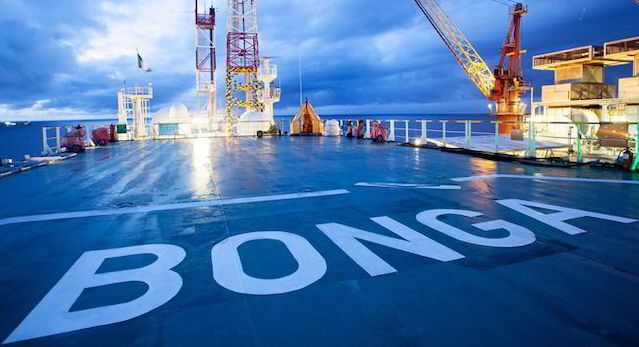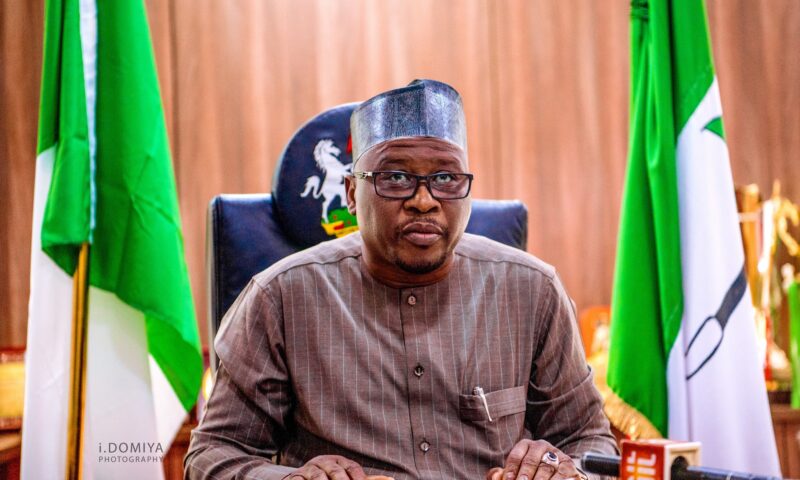By Mohammed Shosanya
The Centre for the Promotion of Private Enterprise, CPPE,has tasked that the President-elect,to demonstrate deep commitment to the implementation of the Petroleum Industry Act in the country.
Its Chief Executive Officer,CEO,Dr.Muda Yussuf,who gave the suggestion in a statement,said the development would attract more investment into the oil and gas sector.
He also advised the in-coming government to remove petrol subsidy with minimum shocks to the economy and the citizens as well as consider appointment of substantive minister of Petroleum Resources to promote professionalism and transparency in the sector.
He added:”The practice of the President assuming the role of Minister of Petroleum should be discontinued.The current impressive momentum to tackle oil theft should be sustained in order to boost oil production”
He also tasked the in-coming government to ensure tariff regime that adequately protects local industries,while import duty on intermediate products and critical industrial inputs should be reviewed to reduce production costs.
Tariff review processes,he said,should be more inclusive and transparent,adding that the administration should prioritize trade facilitation and removal all non-tariff barriers to trade.
He advised that there should be removal of all customs checkpoints within the country,stressing that the practice of intercepting cargoes that have been duly cleared at any of our ports should be discontinued.
He said:”The practice of appointing non career persons as Comptroller General of the Nigeria Customs Service should be stopped. It is detrimental to professionalism and morale of career officers in the customs service.There should a balance between the revenue objectives and trade facilitation objectives of the Nigeria customs service. There is currently a disproportionate focus on revenue generation”
According to him,policy on agriculture must be holistic, focusing on the entire value chain,and due attention must be given to cost and availability of inputs, production and productivity, application of technology, logistics and marketing, processing and storage.
He added that there is an urgent need to transit from subsistence farming to mechanized and commercial agriculture driven by technology.
The administration should also consider conscious effort to attract the youths into agriculture as the farming population is rapidly ageing,adding that would only happen if sector is technology driven.
He emphasized the need for the in-coming government to strengthen the linkage between agriculture and industry within a sustainable backward integration framework.
On industrialization,Yussuf advised in-coming administration to ensure liquidity in the foreign exchange market to guarantee access to foreign exchange for the procurement of raw materials and machineries for industry.
He also suggested rapid investment in core industries to support backward integration aspirations of government and scaling up investment in infrastructure through the injection of more funds and the attraction of private capital into the infrastructure space.
He added:”This would reduce production cost and boost productivity in manufacturing.Creation of more industrial parks across the country and improvement in the facilities in existing ones.Need to strengthen current development finance to support the real sector with appropriate financing – single digit facility with a minimum of five years tenure”
He advised a regulatory environment where regulatory risks and regulatory shocks are at the barest minimum with a view to boosting investors’ confidence.
He reasoned that regulatory institutions and economic players must relate as partners, without necessarily compromising regulatory effectiveness.
He added:”We should put an end to the culture of regulatory intimidation, coercion and undue harassment.There should regular consultative forums between industry players and regulators”.
To him,the incoming administration must reposition the nation’s banking system to play its fundamental role of financial intermediation for the benefit of investments in the economy,while key regulatory instruments of the CBN should be interrogated to ensure their appropriateness and impact on the economy.
He said:”The CRR regime is one of such policy instruments that would require a review.Current CRR of 32.5% is one of the highest globally. It has serious implication for financial intermediation.
“The imperial and intimidating disposition of the current leadership of the CBN needs to be moderated in the interest of the development and stability of the financial system. The development finance operations in the economy have had some positive impact for a few beneficiaries in the real sector.
“But it needs to be streamlined to minimize loan losses and ensure effective targeting of deserving investors.There is need to ensure full compliance with the recent ruling of the Supreme Court on the currency redesign policy of the CBN.









